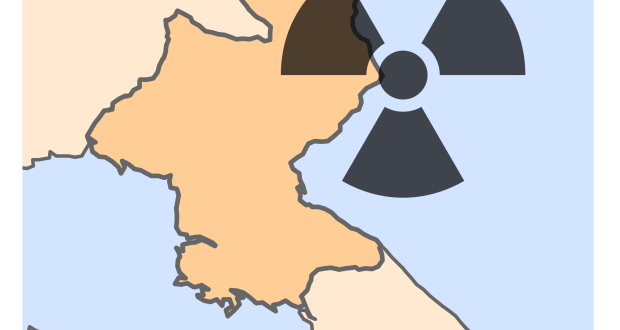In the world of realpolitik, President Duterte needs to repair the country’s relations with its only bulwark, the US, unless it wishes to grant its territorial claims to China on a silver platter.
Read More »
Kalyani Subbiah November 13, 2016 Asia and Pacific, Latest Articles, Security and Defence
In the world of realpolitik, President Duterte needs to repair the country’s relations with its only bulwark, the US, unless it wishes to grant its territorial claims to China on a silver platter.
Read More »Davis Florick October 25, 2016 Asia and Pacific, Latest Articles, Security and Defence
jn Japan's options going forward in dealing with belligerent neighbour North Korea.
Read More »Davis Florick October 8, 2016 Asia and Pacific, Latest Articles, Security and Defence
North Korea’s most recent missile test, which involved the firing of a submarine-launched ballistic missile, elevates the level of instability in Northeast Asia at a time when the regional political climate is already fragile
Read More »Davis Florick October 3, 2016 Asia and Pacific, Latest Articles, Security and Defence
The Association of Southeast Asian Nations (ASEAN) is a cosmopolitan group drawing from diverse ethnic, historical, and political backgrounds. If there is one thing that unites all ten states, it is that change is occurring at a lightning-fast pace.
Read More »Davis Florick September 24, 2016 Asia and Pacific, Latest Articles, Security and Defence
The challenge for the US and its partners in the region is appreciating China’s complex history and the difficulties the CCP now finds itself in while also trying to develop negotiating space.
Read More »Davis Florick September 8, 2016 Asia and Pacific, Latest Articles, Security and Defence
September 8th, 2016 By Davis Florick – Junior Fellow The Philippines’ victory at the Permanent Court of Arbitration (PCA) was significant for the states bordering the South China Sea. For once, China’s smaller neighbors were able to stand up and ...
Read More »Sarah De Geest July 25, 2016 Asia and Pacific, Latest Articles, The Policy Unit
International legal norms such as freedom of navigation must be actively upheld for them to remain relevant.
Read More »Rowan Allport March 15, 2016 Asia and Pacific, Latest Articles, Security and Defence
Japan is embracing a role in the security order of South East Asia that it has long denied itself. Whilst it will never take over the role of the US in ensuring regional stability, the country is currently in the process of positioning itself as a leader in the drive to contain Beijing’s ambitions.
Read More »Davis Florick August 24, 2015 Asia and Pacific, Latest Articles, Security and Defence
The relativist argument that Hun Sen’s corruption is better than King Sihanouk’s ineptitude, Lon Nol’s civil war, and Pol Pot’s genocide is no longer acceptable for people born long after these other leaders’ times in power.
Read More »Rowan Allport October 7, 2014 Asia and Pacific, Latest Articles, Security and Defence, The Americas
Whilst both Vietnam and the US suffered a massive trauma as a result of the conflict between the two countries, the status the war occupies today in these nations is more as a set of personal tragedies, rather than a cultural and institutional monolith that defines the relationship between them. If handled correctly, enhanced collaboration could offer the prospect of massive and almost cost-free foreign policy benefits for both countries.
Read More » Human Security Centre Human Rights and International Security Research
Human Security Centre Human Rights and International Security Research